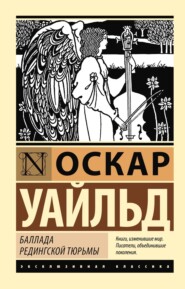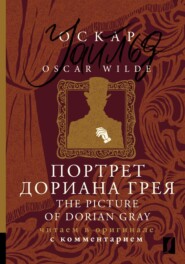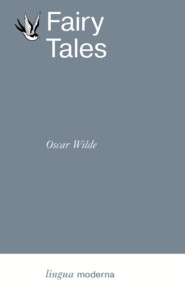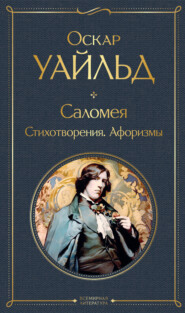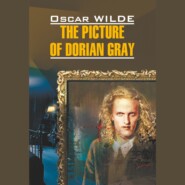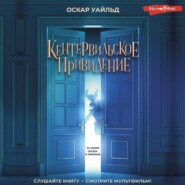По всем вопросам обращайтесь на: info@litportal.ru
(©) 2003-2024.
✖
Oscar Wilde: A Life in Letters
Настройки чтения
Размер шрифта
Высота строк
Поля
If I could hope that the Church would wake in me some earnestness and purity I would go over as a luxury, if for no better reasons. But I can hardly hope it would, and to go over to Rome would be to sacrifice and give up my two great gods ‘Money and Ambition’.
Still I get so wretched and low and troubled that in some desperate mood I will seek the shelter of a Church which simply enthrals me by its fascination.
I hope that now in the Sacred City you are wakened up from the Egyptian darkness that has blinded you. Do be touched by it, feel the awful fascination of the Church, its extreme beauty and sentiment, and let every part of your nature have play and room.
We have had our Sports and are now in the midst of Torpids and tomorrow the pigeons are shot. To escape I go up to town to see the Old Masters with the Kitten! who is very anxious to come. Dear little Puss is up, and looks wretched, but as pleasant and bright as ever. He is rather keen on going to Rome for Easter with me, but I don’t know if I can afford it, as I have been elected for the St Stephen’s [Club] and have to pay £42. I did not want to be elected for a year or so but David Plunket ran me in in three weeks some way rather to my annoyance.
I would give worlds to be in Rome with you and Dunskie. I know I would enjoy it awfully but I don’t know if I can manage it. You would be a safeguard against Dunskie’s attacks.
I am in for the ‘Ireland’ on Monday. God! how I have wasted my life up here! I look back on weeks and months of extravagance, trivial talk, utter vacancy of employment, with feelings so bitter that I have lost faith in myself. I am too ridiculously easily led astray. So I have idled and won’t get it and will be wretched in consequence. I feel that if I had read I would have done well up here but I have not.
I enjoy your rooms awfully. The inner room is filled with china, pictures, a portfolio and a piano – and a grey carpet with stained floor. The whole get-up is much admired and a little made fun of on Sunday evenings. They are more delightful than I ever expected – the sunshine, the cawing rooks and waving tree-branches and the breeze at the window are too charming.
I do nothing but write sonnets and scribble poetry – some of which I send you – though to send anything of mine to Rome is an awful impertinence, but you always took an interest in my attempts to ride Pegasus.
My greatest chum, except of course the Kitten, is Gussy who is charming though not educated well: however he is ‘psychological’ and we have long chats and walks. The rest of Tom’s set are capital good fellows but awful children. They talk nonsense and smut. I am quite as fond of the dear Kitten as ever but he has not enough power of character to be more than a pleasant affectionate boy. He never exerts my intellect or brain in any way. Between his mind and mine there is no intellectual friction to rouse me up to talk or think, as I used when with you – especially on those dear rides through the greenwood. I ride a good deal now and the last day rode an awful brute which by a skilful buckjump threw me on my head on Shotover. I escaped however unhurt and got home all safe.
The Dean comes sometimes and we talk theology, but I usually ride by myself, and have got such new trousers – quite the dog! I have written a very foolish letter; it reads very rambling and absurd, but it is so delightful writing to you that I just put down whatever comes into my head.
Your letters are charming and the one from Sicily came with a scent of olive-gardens, blue skies and orange trees, that was like reading Theocritus in this grey climate. Goodbye. Ever, dear boy, your affectionate friend
OSCAR WILDE
I have a vacant page.
I won’t write to you theology, but I only say that for you to feel the fascination of Rome would to me be the greatest of pleasures: I think it would settle me.
And really to go to Rome with the bugbear of formal logic on one’s mind is quite as bad as to have the ‘Protestant jumps’.
But I know you are keenly alive to beauty, and do try and see in the Church not man’s hand only but also a little of God’s.
To the Rev. H. R. Bramley
2 April 1877 Hotel St George, Corfu
My dear Mr Bramley, My old tutor Mr Mahaffy, Fellow of Trinity College Dublin, met me on my way to Rome and insisted on my going with him to Mykenae and Athens. The chance of seeing such great places – and in such good company – was too great for me and I find myself now in Corfu. I am afraid I will not be able to be back at the beginning of term. I hope you will not mind if I miss ten days at the beginning: seeing Greece is really a great education for anyone and will I think benefit me greatly, and Mr Mahaffy is such a clever man that it is quite as good as going to lectures to be in his society.
We came first to Genoa, which is a beautiful marble city of palaces over the sea, and then to Ravenna which is extremely interesting on account of the old Christian churches in it of enormous age and the magnificent mosaics of the fourth century. These mosaics were very remarkable as they contained two figures of the Madonna enthroned and receiving adoration; they completely upset the ordinary Protestant idea that the worship of the Virgin did not come in till late in the history of the Church.
I read the book you kindly lent me with much interest; the Roman Catholics certainly do seem to confuse together Catholic doctrines which we may all hold and the supremacy of the Pope which we need not hold.
I hope your health has been good this Easter. We expect to be in Athens by the 17th and I will post back to Oxford immediately. Yours very truly
OSCAR WILDE
The Easter term at Oxford started on 4 April and Wilde must have arrived back at least three weeks late. The Rev. Bramley (Dean of Arts at Magdalen, and responsible for internal college discipline) and the other Fellows decided that Wilde’s cavalier behaviour was intolerable, fined him half his annual scholarship and rusticated him for the rest of the academic year. As he later remarked to his friend Charles Ricketts, ‘I was sent down from Oxford for being the first undergraduate to visit Olympia.’ Turning adversity to advantage, he immediately had himself invited to the opening of the new Grosvenor Gallery, and networked his way around artistic and literary London.
To W. E. Gladstone
[14 May 1877] 1 Merrion Square North
Sir, Your noble and impassioned protests, both written and spoken, against the massacres of the Christians in Bulgaria have so roused my heart that I venture to send you a sonnet which I have written on the subject.
I am little more than a boy, and have no literary interest in London, but perhaps if you saw any good stuff in the lines I send you, some editor (of the Nineteenth Century perhaps or the Spectator) might publish them: and I feel sure that you can appreciate the very great longing that one has when young to have words of one’s own published for men to read. I remain, in deepest admiration, your obedient servant OSCAR WILDE
To Reginald Harding
Tuesday [15 May 1877] 1 Merrion Square North
My dear Boy, Thanks for your letter: I had made out the facts by a careful study of the statutes going up to town, but it was comforting all the same to have it confirmed by such an authority as the Schools Clerk.
I had a delightful time in town with Frank Miles and a lot of friends and came home on Friday. My mother was of course awfully astonished to hear my news and very much disgusted with the wretched stupidity of our college dons, while Mahaffy is raging] I never saw him so indignantly angry; he looks on it almost as an insult to himself.
The weather is charming, Florrie more lovely than ever, and I am going to give two lectures on Greece to the Alexandra College girls here, so I am rapidly forgetting the Boeotian αυαισθησια [insensibility] of Allen and the wretched time-serving of that old woman in petticoats, the Dean.
As I expected, all my friends here refuse to believe my story, and my brother who is down at Moytura at present writes me a letter marked ‘Private’ to ask ‘what it really is all about and why have I been rusticated’, treating my explanations as mere child’s play.
I hope you will write and tell me all about the College, who is desecrating my rooms and what is the latest scandal.
When Dunskie comes tell him to write to me and remember me to Dick and Gussy and little Dunlop and everyone you like or I like. Ever yours
OSCAR
I am going down I hope for my May fishing soon, but I am overwhelmed with business of all kinds.
Get Aurora Leigh by Mrs Browning and read it carefully.
To Lord Houghton
[Circa 17 May 1877] 1 Merrion Square North
Dear Lord Houghton, Knowing your love and admiration for John Keats I venture to send you a sonnet which I wrote lately at Rome on him: and should be very glad to know if you see any beauty or stuff in it.
Someway standing by his grave I felt that he too was a Martyr, and worthy to lie in the City of Martyrs. I thought of him as a Priest of Beauty slain before his time, a lovely Sebastian killed by the arrows of a lying and unjust tongue.
Hence – my sonnet. But I really have other views in writing to you than merely to gain your criticism of a boyish poem.
I don’t know if you have visited Keats’s grave since a marble tablet in his memory was put up on the wall close to the tomb. There are some fairly good lines of poetry on it, but what is really objectionable in it is the bas-relief of Keats’s head – or rather a medallion profile, which is extremely ugly, exaggerates his facial angle so as almost to give him a hatchet-face and instead of the finely cut nostril, and Greek sensuous delicate lips that he had, gives him thick almost negro lips and nose.
Keats we know was lovely as Hyakinthos, or Apollo, to look at, and this medallion is a very terrible lie and misrepresentation. I wish it could be removed and a tinted bust of Keats put in its place, like the beautiful coloured bust of the Rajah of Koolapoor at Florence. Keats’s delicate features and rich colour could not be conveyed I think in plain white marble.
In any case I do not think this very ugly thing ought to be allowed to remain: I am sure a photograph of it could easily be got, and you would see how horrid it is.
Your influence and great name could achieve anything and everything in the matter, and I think a really beautiful memorial might be erected to him. Surely if everyone who loves to read Keats gave even half-a-crown, a great sum of money could be got for it.
I know you always are engaged in Politics and Poetry, but I feel sure that with your name at the head of the list, a great deal of money would be got: in any case the ugly libel of Keats could be taken down.
I should be very glad to hear a line from you about it, and feel sure that you will pardon my writing to you on the subject. For you are fitted above all others to do anything for Keats’s memory.






